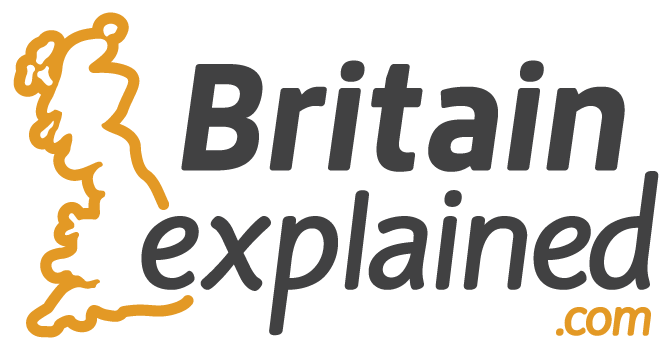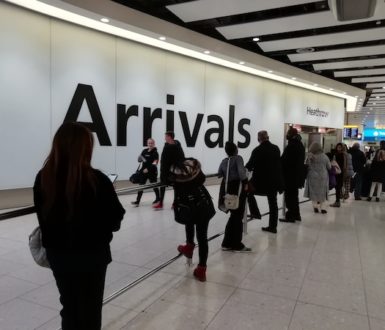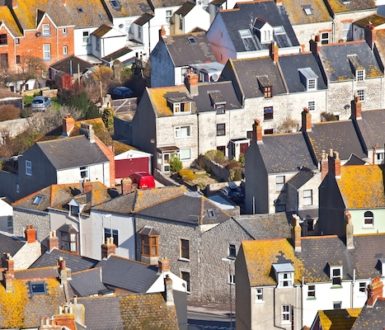This is an explanation of common tax questions. It is not advice, please consult a financial professional for more information.
HMRC is Her Majesty’s Revenue & Customs, the government department that collects taxes.
- Go to the HMRC website.
The general rule is that you must pay UK tax on income you earn in the UK, including UK investments and property.
Whether you need to pay UK taxes on money earned outside the UK usually depends on your residency and domicile.
If you are a British citizen who lives and works in Britain all year, you are very likely to be both a UK resident and a UK domicile.
If you don’t think you are a UK resident or UK domicile, speak to a tax expert. There are special rules for students, people on work secondment and people who move to the UK during a tax year.
This is a very complicated subject and mistakes could lead to serious consequences – both in the UK and other countries. It might also mean you are paying tax in two different countries on the same income.
- Read more about residence and domicile on the main government website.
Most people are taxed before the get their wages (known as PAYE). If this is your only income, you do not need to submit a tax return. However, you must submit a tax return if:
- You pay the higher rate or additional rate of income tax
- You had a total taxable income of more than £100,000
- You earn more than £1,000 through self-employment
- You are a partner in a business partnership
- You get child benefit and earn over £50k
- You paid Capital Gains Tax on something you sold
You usually need to send one if:
- You have untaxed UK income (this includes cash wages, property rental money, tips and commissions, or investment)
- You have foreign income
Tax returns must be sent by 31 January. You might have to pay a tax bill (usually also by 31 January).
Be aware, you might also have to pay tax on interest paid to children, if you made investments for them using your own money.
- Read more about Self Assessment tax returns and use their checking tool on the main government website.
The UK tax year is from 6 April to 5 April the year after. The deadline for submitting a tax return is 10 months later on 31 January.
For example:
- Tax year from 6 April 2020 until 5 April 2021. Submit tax return and pay tax by 31 January 2022.
Capital Gains tax is a tax usually paid when you sell something you own and make a profit. This could be an item (like a painting, furniture or jewellery), or it could be an asset (like shares, bitcoin or property).
You only pay tax on the profit, not the full value of the item when you sell it. Most people have a tax-free allowance each tax year – you do not need to pay tax on Capital Gains below this amount. You usually do not need to pay Capital Gains tax if you sell your main home or car, or if you give something as a gift to your partner or a charity.
People who are not UK residents do not usually need to pay UK tax on gains they make in this way. There are some exceptions, however:
- UK residential property and land
- Gains that come during a temporary period of non-residence in the UK
- Disposal of certain business assets
Speak to a tax expert for more information.
Read more about Capital Gains tax on the main government website.
If you donate money to a charity, you might be asked about Gift Aid. Gift Aid is a scheme run by the government. It allows a charity to reclaim tax on donations made by UK taxpayers. This increases the value of the donation by at least 25%.
The person who makes the donation has to give their name and address and confirm that they pay UK taxes.
The amount they paid in tax must be equal or above what the charity will claim from the government.
Even donations of sellable items can be part of the Gift Aid scheme (for example, items given to a charity shop). The charity can reclaim 25% of the amount the items were sold for.
Residency (for tax purposes) is based on the days spent in a country in any given tax year, although there are other factors that affect it too.
As a simple guide, people are a ‘UK resident ‘ if their only home is in the UK or if they are in the UK for 183 days or more in any tax year.
This means someone can be a UK resident, but not a British citizen – or a British citizen, but not a UK resident.
- UK residents pay tax on income from the UK and worldwide (for example wages, investments or property). The exception is people with non-domiciled status.
- Non-residents only need to pay tax on income earned in the UK.
- UK resident status only applies to one tax year at a time. You might be a UK resident in one year, but not the next year.
- UK residents need to pay tax on foreign income, even if they are not working in the UK.
For people who travel a lot, residency can be difficult to work out. The government has a series of tests (called the Statutory Residence Test) to check who it applies to. Speak to a tax expert to make sure you have the right classification.
- Read more about residence on the main government website.
Your ‘domicile’ is the legal name for your permanent home country. Everyone must have one domicile.
For example, it is very likely you are a ‘UK domicile’ if you have always lived in the UK.
It is rare for your domicile to change, but sometimes it is different to the country where you were born or have citizenship (for example if you have started a family in a different country and now live there permanently).
If your domicile is not clear, it can be helpful to know it is often linked to your father’s domicile at the time of your birth.
Your domicile affects some of the taxes you need to pay, including income tax, capital gains tax and inheritance tax. Speak to a tax expert to find out more.
Non-domiciled status is a legal term that can affect which UK taxes you need to pay.
If your home country is not the UK (or you have permanently settled outside the UK) you may be able to get ‘non-domiciled status’, even if you are a classed as a UK resident in any given tax year. This can affect how much UK tax you need to pay on foreign income and assets. From April 2025, non-domiciled status is being replaced by a residency-based scheme.
People with non-domiciled status are sometimes called ‘non-doms’. In the tax year ending April 2018, 78,300 people claimed non-dom status. In total, they paid over £7.5 billion in UK taxes.
Get professional advice if you have foreign income or assets and want to claim non-domiciled status. It is a very complex subject.
- Read more about non-domiciled status on the main government website.
Even if someone has non-domiciled status, they might have to follow the same tax rules as UK domiciles in some circumstances. This is called a ‘deemed domicile’.
There are 2 ways this might happen
- If someone has been a ‘UK resident’ for 15 or more tax years during the past 20 full tax years
- If someone was born in the UK, originally domiciled in the UK and was also a UK resident in 2017 or later.
Find out more about deemed domiciles on the main government website.
Income is any money that you earn. It could come from:
- Work
- Profit from self-employment
- Pensions
- Interest on savings
- Investments
- Rent from a property you own
- Workplace benefits (a company car, for example)
- Selling things (including items sold on Ebay or through an app)
- Some state welfare payments, for example the state pension
Usually, people living in the UK have to pay tax on their UK income over a certain level. They might also have to pay tax on foreign income.
The money from income tax pays for nationwide government services.
You might need to do a tax return.
- Read more about income tax on the main government website.
Most people get some income tax-free. This is called the ‘personal allowance’.
There are also allowances for other things. An allowance means you can earn a set amount before you need to pay tax. The size of the allowance depends on your tax rate.
There are some tax-free allowances for:
- Self-employment and trading
- Property rental
- Interest on savings
- Income from company shares (dividends)
Some savings accounts (for example ISAs and National Savings Certificates) give tax-free interest.
There is also tax relief for some situations (for example pension payments or charity payments). This means you either pay less tax or you get some tax back.
The tax rules can be complicated. It is possible to pay an accountant to do the tax return for you.
- Read more about personal allowance on the main government website.
There are different rates (or bands) of income tax, depending on how much you earn. At the moment, the rates are:
- Personal allowance: usually tax-free up to £12,500, but it can vary
- Basic rate tax: 20% on earnings between £12,501 to £50,000
- Higher rate tax: 40% on earnings between £50,001 to £150,000
- Additional rate tax: 45% on earnings over £150,000
Be aware that these figures are not exact because the personal allowance could be smaller or bigger, depending on your overall taxable income and circumstances.
- Read more about income tax rates and personal allowance on the main government website.
- The rates are different in Scotland. Read more on the Scottish government website.
If you are employed, your employer usually pays the tax and National Insurance on your salary before they pay you. This is a system called PAYE (pay as you earn).
If you earn below the higher rate of income tax and have no other income, you probably don’t need to fill out a tax return.
- Read more about PAYE on the main government website.
A tax code tells your employer how much tax to pay HMRC (the government tax department) before they give you your salary. The code is a mix of numbers and letters. Most people have the code 1250L.
The number gives information about how much you can earn before you must pay tax (your personal allowance) and the letter reflects any special circumstances.
Pension providers also use tax codes when they give pension payments.
- There is more detail about tax codes on the main government website.
National Insurance is a tax paid by all working people. The money is used for state pensions and benefits like the NHS.
All workers are given a National Insurance (NI) number.
NI is usually paid by your employer. If you are self-employed, you need to pay it yourself. You start paying National Insurance once you earn £9,500 (in 2020).
- Read more about National Insurance on the main government website.
You do not need usually need to pay tax on foreign income used for course fees or living costs (food, rent, study materials etc).
However, you might need to pay UK tax if:
- The money comes from a country without a double-taxation agreement with the UK
- You spend over £15,000 a year (excluding course fees)
- You spend money on things that are not living costs or course fees
- You plan to make the UK your domicile
- You get a job in the UK while you are studying
You might want to ask a tax expert to help you.
Read more about studying in the UK on the main government website.
There are several taxes that are added to products and services. Usually, the price you see includes all the taxes.
- VAT (value added tax): This is not just a sales tax – VAT can also be added in the supply chain, or for services such as plumbing or building work. The standard rate is 20%, although some products/services are taxed at 5%.
- Fuel duty: Added to fuel for cars and for home heating. You also pay VAT (either 5% or 20%) on fuel.
- Alcohol & tobacco duty: added when you buy vapes, alcohol or tobacco products. The rate changes, depending on the strength/type of product. You also pay 20% VAT on these products.
- Gambling duties: added when you gamble. The rate changes, depending on what type of gambling you are doing (for example bingo, spread betting or fruit machines).
- Insurance premium tax: added when you buy insurance.
- Air passenger duty: added when you fly from the UK.
Find out more about taxes on shopping on the main government website.
VAT (value added tax) is not charged on food, except for items that are luxuries, for example crisps, chocolate, restaurant food/hot takeaways and alcoholic drinks.
Other items that do not have VAT added are (for example) children’s clothes and shoes, sports activities, entry to museums or galleries, second-hand items or products for the disabled.
Standard rate VAT is 20%.
There is also a 5% rate of VAT. This is added to (for example) fuel, sanitary protection, mobility aids for old people and nicotine patches.
- Read more about VAT on the main government website.




